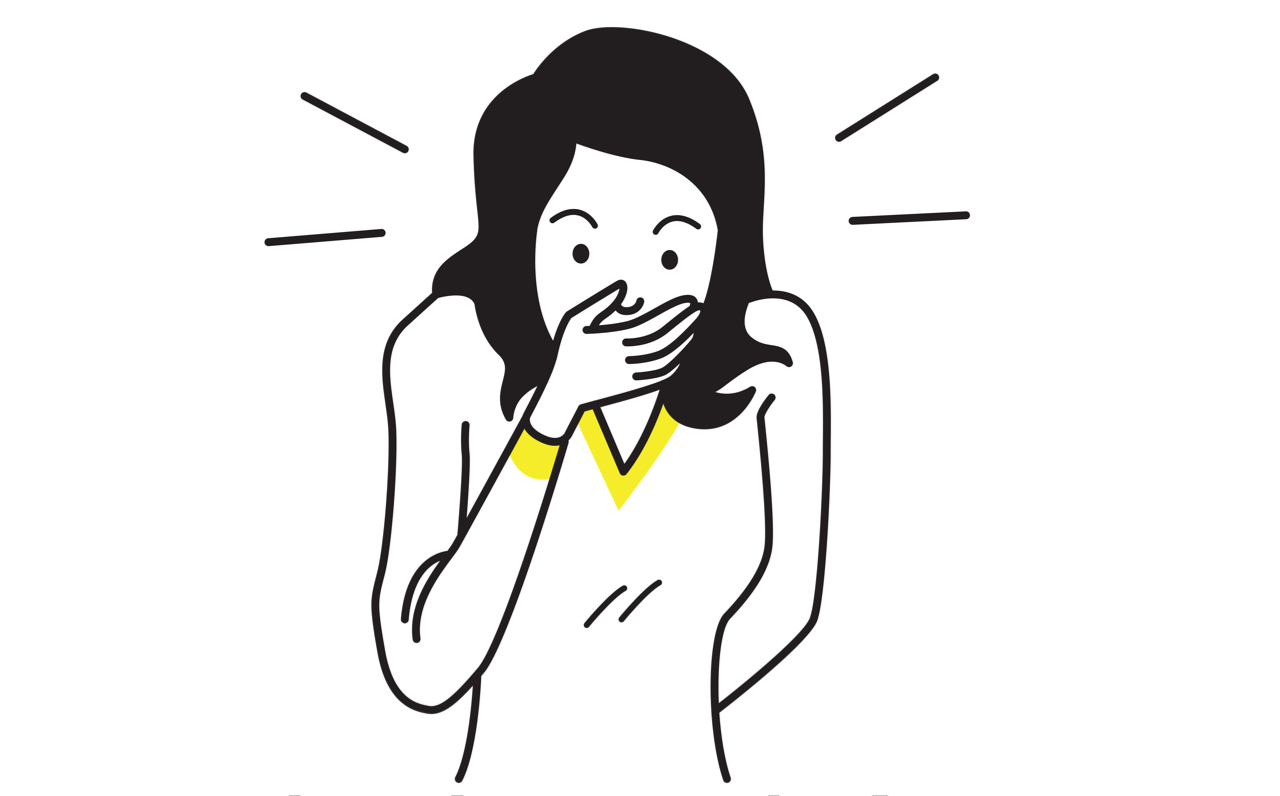You’re in the middle of telling your friends how your weekend was, when “hic!” your body jerks and your throat quickly contracts. Oh man! You have the hiccups again. Why does this happen, and how do you make it stop?
Hiccups are involuntary contractions from your diaphragm, the muscle that separates your chest from your abdomen. The diaphragm plays an important role in breathing. When you hiccup, your vocal cords are blocked after each contraction which causes you to make the “hic” sound.
Hiccups are usually harmless, but in some cases, they may be linked to a serious condition.
Why does it happen?
Common triggers for hiccups include
- fizzy drinks
- drinking too much alcohol
- overeating
- excitement
- emotional stress
- swallowing air
- chewing gum
- spicy food
- sucking on sweets for a long time.
Get the hiccups under control
Hiccups which last 48 hours and less are generally harmless and can be managed. Here are a few tips to halt the hiccups.
- Hold your breath
This helps because it raises the levels of carbon dioxide in your blood, which prevents spasms in the diaphragm. - Drink a glass of water
Drinking water stimulates the vagus nerve that coordinates breathing and swallowing. This can stop hiccupping because this nerve sends signals to your brain to concentrate on other sensations, like swallowing instead. - Suck on lemon or sugar
Sweet or tart flavours like lemon and sugar create a new sensation on your tongue which stops the pattern of hiccups. - Stick out your tongue
This stimulates your vagus nerve and eases diaphragm spasms. This also helps you to avoid gagging reflexes.
When is a hiccup serious?
The longest case of the hiccups ever recorded is 60 years! If your hiccups last for more than 48 hours, talk to your doctor. It may be a sign of a serious medical condition like meningitis, appendicitis and pneumonia. Hiccups that last more than 48 hours are more common in men than women.
Prolonged hiccups may interfere with eating, sleeping, talking and even wound healing after a surgery. It can also disturb your sleeping and eating patterns, which may lead to exhaustion, malnutrition, weight loss, dehydration and sleeplessness.
Where you have frequent hiccups and struggle to sleep and eat, are experiencing vomitting, abdominal pain, shortness of breath, spitting blood, or feel as though your throat is closing up, it’s important to talk to your doctor.
Chronic hiccups are linked to a wide range of conditions, including strokes and gastrointestinal problems.
Other possible conditions are:
- Asthma
- Goitre
- Multiple sclerosis
- Hyperglycaemia and hypoglycaemia
- Pericarditis
Prevent hiccups
If you frequently experience hiccups, steering clear of triggers will help.
- Avoid drinking fizzy drinks.
- Don’t overeat or eat quickly. Chew your food thoroughly.
- Limit how much alcohol you drink.
- Avoid intense emotions as far as possible and stay calm in stressful situations.
Treatment
If your hiccups can’t be cured with home remedies, you can turn to medical treatments. These include anaesthesia to block the nerves involved with hiccups or surgery to disable them and surgical implants.
References:
- https://www.emedicinehealth.com/hiccups/article_em.htm#what_causes_hiccups
- https://www.healthline.com/symptom/hiccups
- https://www.mayoclinic.org/diseases-conditions/hiccups/symptoms-causes/syc20352613
- https://www.webmd.boots.com/a-to-z-guides/hiccups
- https://www.medicalnewstoday.com/articles/9896.php

